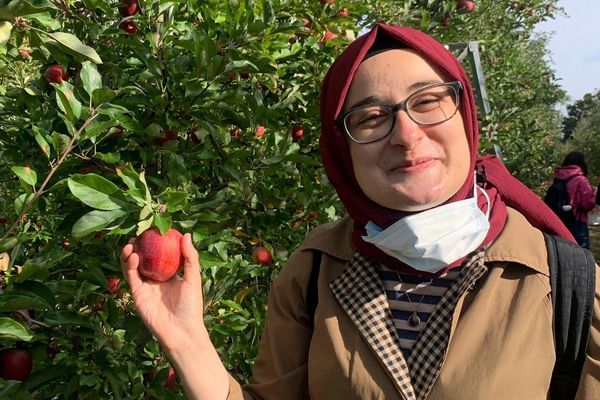
Alarming trends show that colon – or bowel – cancer is increasing in younger people. If the rise continues, colorectal cancer is projected to become the leading cause of cancer-related deaths among young adults globally by 2030.
Until recently, the reasons for this surge were largely unclear or unknown. Now research points to a surprising suspect: gut bacteria.
A recent study reveals that exposure during childhood or adolescence to a toxin produced by certain strains of E coli, whose growth is encouraged by highly processed diets, may lay the groundwork for aggressive bowel cancers decades later. This discovery could help explain why people under 50 are at the heart of one of the fastest-growing cancer epidemics of our time.
Colon cancer is currently the second biggest cause of cancer death, yet only one in three cases are diagnosed in the earliest stages. Often symptomless in its early forms, colon cancer typically begins as polyps and can take ten to 15 years to develop. This slow progression makes regular screening crucial, especially because many patients experience no early warning signs.
For the new research, an international team analysed the complete DNA sequences of 981 colorectal cancer tumours from patients across 11 countries. They discovered striking geographic patterns in the mutations that lead to cancer.
Two specific mutational signatures – SBS88 and ID18 – stood out for their association with colibactin, a DNA-damaging toxin produced by some E coli strains. These bacterial “fingerprints” were 3.3 times more common in patients diagnosed before age 40 than in those over 70. Significantly, these mutations appear early in tumour development, suggesting the damage may occur years – even decades – before cancer is diagnosed.
Read more: Why eating yoghurt regularly could lower your risk of bowel cancer
Gut microbiome
Colibactin doesn’t cause random DNA damage. The study found it tends to target the APC gene, a vital tumour suppressor that normally controls cell growth.
In colibactin-positive cancers, about 25% of APC mutations bore the toxin’s unique signature. This direct hit to the body’s internal “brake system” could explain why these cancers appear earlier in life.
Molecular analysis indicated that colibactin-associated mutations often emerge within the first ten years of life. While this suggests the toxin may silently colonise children’s guts and initiate cancerous changes early, it’s important to note that this remains a theory; the study didn’t directly examine children or young adults.
Still, the research maps out a microbial pattern of cancer risk. These gut bacteria are not the same as those that cause food poisoning – they often live within us and perform beneficial roles.
But their composition can vary widely by region. Countries including Argentina, Brazil, and Russia – where colorectal cancer rates are climbing – showed higher levels of colibactin-related mutations.
This may reflect regional differences in gut microbiomes influenced by diet (particularly ultraprocessed foods), antibiotic use and environmental factors. In contrast, Japan and South Korea, where rates are historically high but stable, showed different mutational patterns, suggesting other causes may dominate there.
Perhaps the most provocative finding relates to when this bacterial damage occurs. Unlike lifestyle risks that build up over decades, colibactin seems to strike during a narrow window – when the microbiome is still forming in childhood or early adulthood.
Potential triggers could include repeated antibiotic use that disrupts healthy gut bacteria, highly processed diets that favour E. coli growth and urban living that reduces exposure to diverse microbial environments.
Not just genes and lifestyle
These findings may also point to new prevention strategies. Screening programs could focus on younger adults carrying these high-risk bacterial strains, using stool tests to detect colibactin genes.
Diets high in fibre and low in processed foods might promote a healthier gut microbiome, potentially suppressing harmful bacteria. The research also adds weight to calls for lowering colorectal cancer screening ages worldwide, since many early-onset cases go undetected under current guidelines.
While this study is a major step forward, many questions remain. Why do some people carry colibactin-producing bacteria but never develop cancer? How do modern lifestyle factors amplify – or mitigate – these microbial risks? What we do know is that cancer results from the complex interplay between our genes and our environment – including the microscopic world within us.
As researchers continue to connect the dots, one thing is clear: the colorectal cancer epidemic of the 21st century may have begun with silent microbial battles in our guts, decades before diagnosis. This emerging view of cancer not just as a genetic or lifestyle disease, but also as a microbial one – could fundamentally reshape how we think about prevention for future generations.
Justin Stebbing does not work for, consult, own shares in or receive funding from any company or organisation that would benefit from this article, and has disclosed no relevant affiliations beyond their academic appointment.
This article was originally published on The Conversation. Read the original article.







